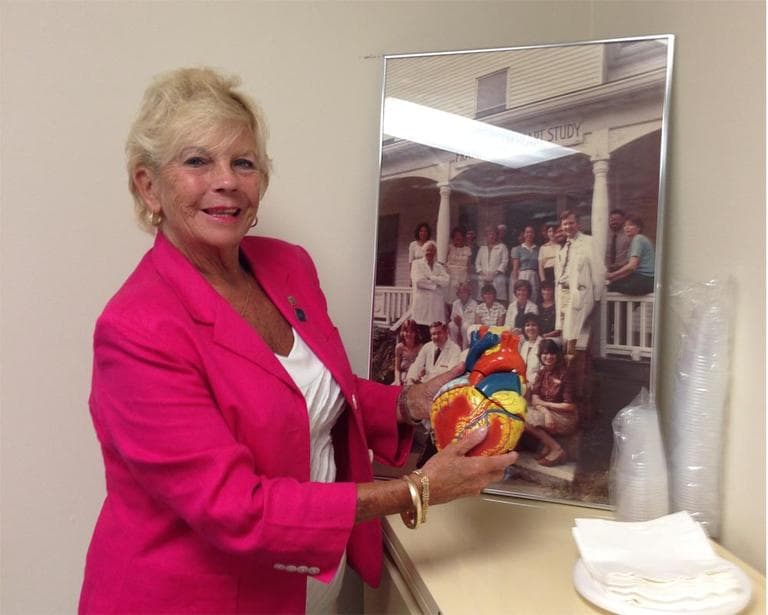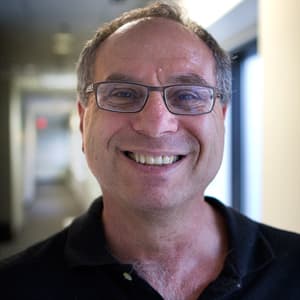Advertisement
Sequester Puts 65-Year-Old Framingham Heart Study In Jeopardy
ResumeThe Framingham Heart Study is considered one of the most important research projects in medical history.
Over the last 65 years, data from the study has been used to develop and test technologies and treatments that have saved millions of lives and hundreds of billions of dollars in health care costs.
But now, the mandated across-the-board federal budget cuts known as the sequester are dramatically reducing federal funding for the research.
A National Wake-Up Call
Between 1900 and the end of World War II, the death rate from heart disease in the U.S. nearly tripled. Changes in diet and industrial lifestyle made heart disease the leading cause of death in the country, killing more people in a year than all the American soldiers who died in action during the second World War.
A wake-up call came on April 12, 1945, when President Franklin D. Roosevelt died of a stroke. The underlying causes were cardiovascular diseases — heart failure and hypertension. Three years later, the federal government launched an unprecedented effort to determine why so many Americans were dying from cardiovascular diseases.
For their study, scientists chose a typical American town: Framingham, Mass.
The study and its vast archives is unique. Researchers have collected detailed information from medical exams of three generations of Framingham residents — nearly 15,000 people.
Karen Kiley LeChance's parents Bill and Flo Kiley, her two sisters, brother and her 33-year-old son all volunteered to serve without pay as subjects in the study.
"The passion is kinda passed on within the family. People are proud to be participating, it's unique. I've had people say, 'I'd like to join that, I'm interested to join that.' And I said, 'Sorry, you can't, it's a closed club. You had to be an original descendant from a cohort," Kiley LeChance said laughing.

There are still about 100 original Framingham participants — or cohorts — alive. The youngest is 95. Every few years, each person in the study comes in and undergoes an extensive physical and mental exam. The exams are literally and figuratively the life blood of the study, providing new data to keep the research up to date.
"Back then people didn't have annual physicals, that was kind of for the elite," Kiley LeChance said. "And a lot of the residents in Framingham were invited to participate and they've been able to study our habits, our nutrition, and track us — for me, 42 years now. And whatever the outcome is going to be for me, it's got to help to enlarge the body of science down the road. Individually we can't be very effective, but as a collective database, we're invaluable."
Thanks in part to the Framingham study, deaths from heart disease have been cut by more than 70 percent over the past four decades. The study was the first to link smoking and stress to heart disease and identify cholesterol and obesity as risk factors. In fact, the very term "risk factor" or "factors of risk" was coined by Framingham researchers.
Looking Beyond Heart Disease
As times and technology have changed, so too has the study. In 2009, President Obama had high praise for the advances.
"Since 1948, for example, researchers have been following generations of residents in the town of Framingham, Massachusetts, to better understand the cause of cardiovascular illness," Obama said. "Now we have a chance to study the DNA of these participants and connect what we know after decades of observation to what we'll soon know about their genetic makeup."
"Individually we can’t be very effective, but as a collective database, we’re invaluable.”
Karen Kiley LeChance, study participant
Today, Framingham researchers are looking beyond heart disease. They're using the huge database to search for the genetic origins of Alzheimer's disease, diabetes and the aging process itself. But the 65-year-old study is in jeopardy.
Dr. Daniel Levy, who has been with the Framingham Heart Study for 29 years, says there have been cuts before, but nothing like the sequester. The National Institutes of Health is cutting $4 million from Framingham's $9 million core contract.
Levy is reluctant to discuss the cuts. The subject has clearly touched a nerve at the NIH and at the last minute it flew a public affairs officer to Boston to monitor my interview with Levy. He said he was not comfortable discussing how they plan to make up the budget cuts, and referred me to Boston University — a partner in the study — to discuss layoffs.
"We have never had this kind of a cut," said Dr. Karen Antman, who, as the dean of BU's medical school, administers the study's federal funds. "We were ready to take a hit. We thought certainly a 10 percent hit was fully expected, we even expected a 25 percent hit. We did not expect a 40 percent hit."
The study will continue, but the $4 million cut means the end of the medical exams. Starting in 2015, participants will answer health questions by phone. But Antman says ending the examinations will affect another $28 million worth of research at BU that also depends upon the data and means laying off 19 employees who work on the study.
"If we let these people go because we don't have an exam and because we have this cut and we have to then, when we do get funding for the exams — and I'm sure we will — bring them back or retraining a new group will actually cost more," Antman said. "So we'd like to actually save these jobs and future money."
Antman is optimistic funding for the Framingham exams will eventually be restored, but when and at what cost in terms of scientific discoveries delayed is unknown.
There are hopes Obama might personally intervene and restore Framingham's funding — it happened once before. In 1969, the director of the NIH — citing deep budget problems — decided to end the project. But when town residents and participants began sending donations to Washington to keep it going, President Richard Nixon had a change of heart and saved the Framingham Heart Study.
This program aired on September 11, 2013.
